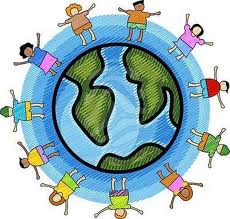Retreat from Multiculturalism
- By Geoffrey Murray
 0 Comment(s)
0 Comment(s) Print
Print E-mail
China.org.cn, September 19, 2011
E-mail
China.org.cn, September 19, 2011

After years of trying to promote multiculturalism to cope with an influx of migrants and refugees, a number of European countries seem to have decided it doesn't work.
"Assimilation" is now the buzzword - placing the onus on the newcomers to demonstrate a stronger loyalty to their new country and a commitment to the system of European cultural values.
This raises many questions at a time when literally millions of people are on the move around the world in search of better economic opportunities or to escape from wars or natural disasters, such as famines, at home.
The strains that this is creating within the Western developed economies were amply demonstrated by the mass killing in Norway two months ago.
The particular target of the change in attitudes would seem to be the Muslim community, which, in recent years, has become more assertive in seeking separate treatment, even to the extent of the host nation tolerating a parallel legal system by adopting aspects of Sharia justice.
In the latest case, the Dutch government decided to abandon its long-standing model of multiculturalism that permitted Muslim immigrants to create a virtual parallel society.
In a covering letter to new integrative legislation presented to parliament, Interior Minister Piet Hein Donner declared: "The government shares the social dissatisfaction over the multicultural society model and plans to shift priority to the values of the Dutch people."
Proper integration of the more than one million Muslims now living in Holland has been a major political issue ever since 2002, when Dutch politician Pim Fortuyn was assassinated for his criticism of Muslim immigration, and since 2004, when Dutch filmmaker Theo van Gogh was stabbed to death for producing a movie criticizing Islam.
The new approach places more demands on immigrants, who will be required to learn the Dutch language, and involves a tougher approach to immigrants who ignore Dutch values or disobey Dutch law, including removal of residence permits.
New legislation will outlaw forced marriages and will also impose tougher measures against Muslim immigrants who lower their chances of employment by the way they dress. More specifically, the government will impose a ban on face-covering Islamic burqas as of January 1, 2013.
A similar retreat from the ideals of multiculturalism pattern can be seen in other parts of Western Europe, as well as in other developed countries such as Canada and Australia.





